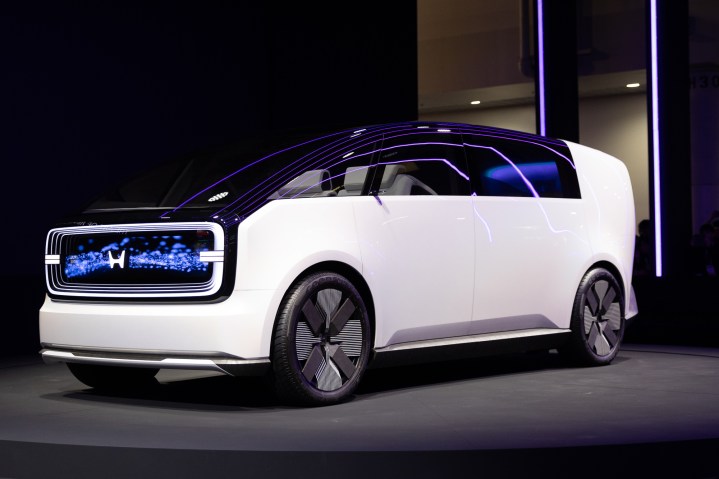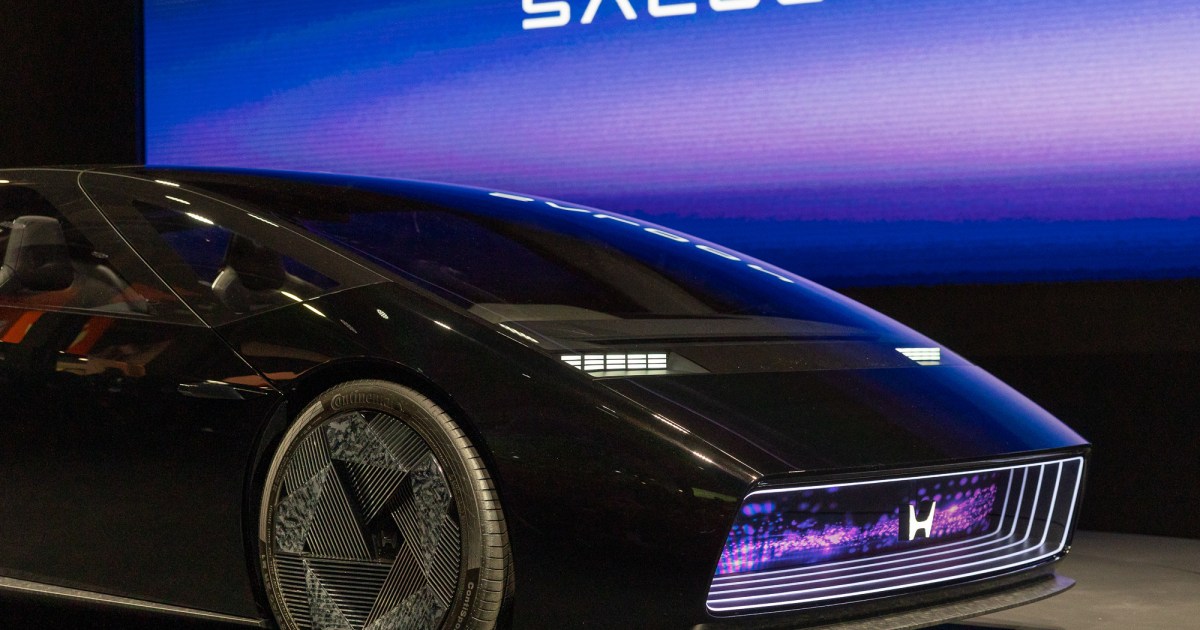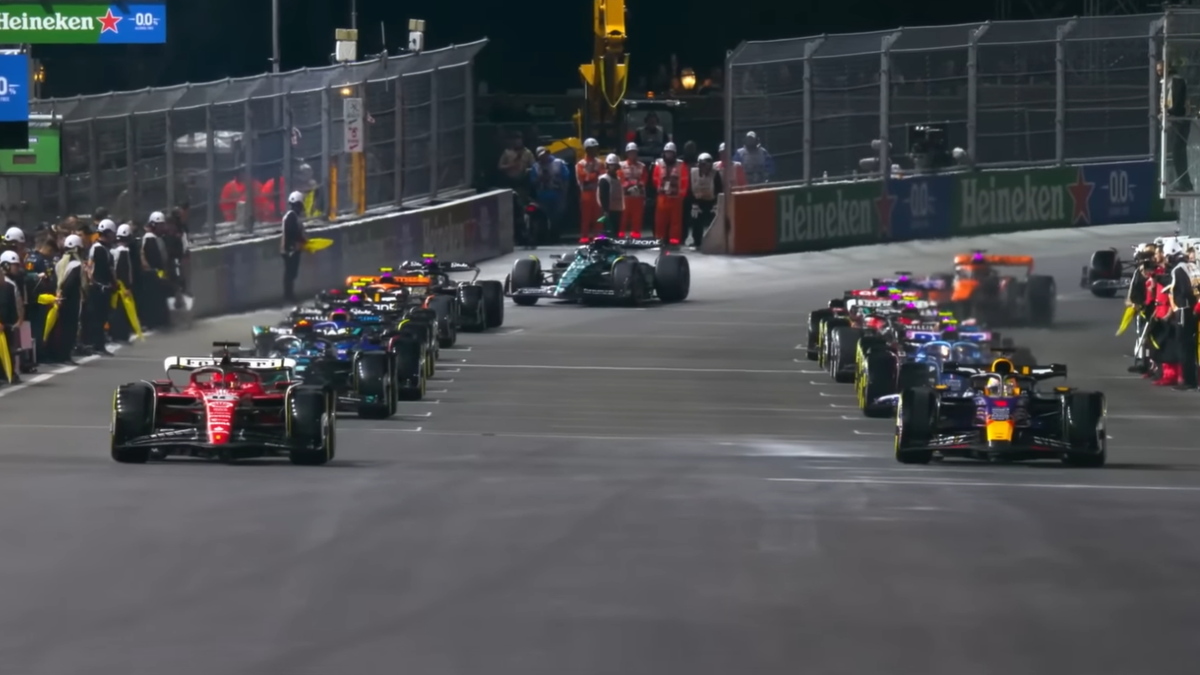Honda is finally getting serious about EVs. At CES 2024, it announced plans to launch a line of them called the 0 Series starting in 2026, and it revealed the first two models in the series with a pair of concept cars.
The two concepts are a van-like EV called the Space-Hub, and the Saloon, which is what people in many countries outside the U.S. call sedans. The Saloon concept is no Honda Accord, though; its cheese-wedge shape is almost supercar-like. We’ll see if that dramatic styling carries over to the production version, which Honda says will go on sale in North America in 2026.
Honda chose the name 0 Series for its new EVs because it represents a fresh start. To wit, these are the first production EVs based on a dedicated platform that won’t be shared with internal combustion models. This provides more efficient packaging, but one downside is a floor height dictated by the dimensions of the battery pack, effectively jacking up the passenger compartment. Honda claims its platform will be as thin as possible to create a low floor and thus sleeker, more aerodynamic vehicles. Honda claims it will also apply lessons learned from racing to aerodynamics.

The 0 Series EVs will get advanced driver aids based on the Honda Sensing Elite system that launched in Japan in 2021 (but hasn’t yet been offered in the U.S.), with a next-generation system arriving later in the 2020s. By that time, Honda also anticipates advanced battery tech that will reduce fast-charging times to just 10 to 15 minutes for a 15% to 80% charge. And those batteries will lose less than 10% of their original capacity after 10 years, Honda claims.
Until the 0 Series EVs arrive, Honda will sell two electric models made by General Motors. Scheduled to go on sale later this year, the Honda Prologue and its luxury Acura ZDX sibling are based on GM’s Ultium component set, specifically the battery pack and chassis used by the Chevrolet Blazer EV and Cadillac Lyriq. But it’s unclear whether current production issues with the Ultium EVs will affect the launching timing of the Honda and Acura models.
The 0 Series models show that Honda has had the resources to engineer its own EVs all along. However, the automaker has been more enthusiastic about hybrids and hydrogen fuel-cell vehicles, keeping U.S.-market EV efforts limited to the low-volume EV Plus, Fit EV, and Clarity Electric. That attitude is finally changing.
Editors’ Recommendations





![Kailash Kher opens up about bond with son, love for tea and more [Exclusive] Kailash Kher opens up about bond with son, love for tea and more [Exclusive]](https://st1.bollywoodlife.com/wp-content/uploads/2024/11/211120241732198149.jpeg)

